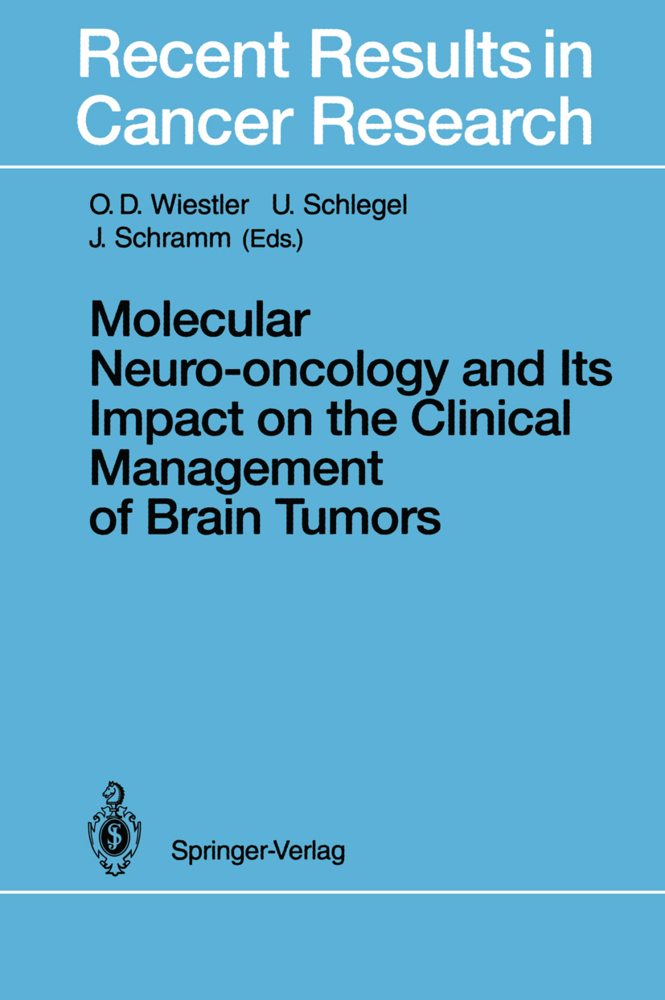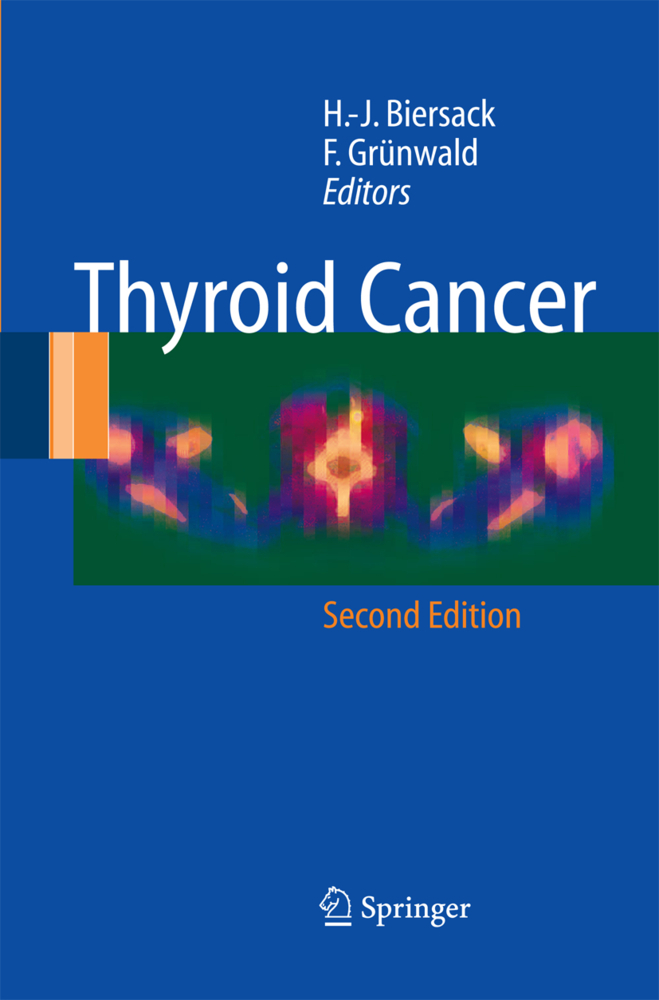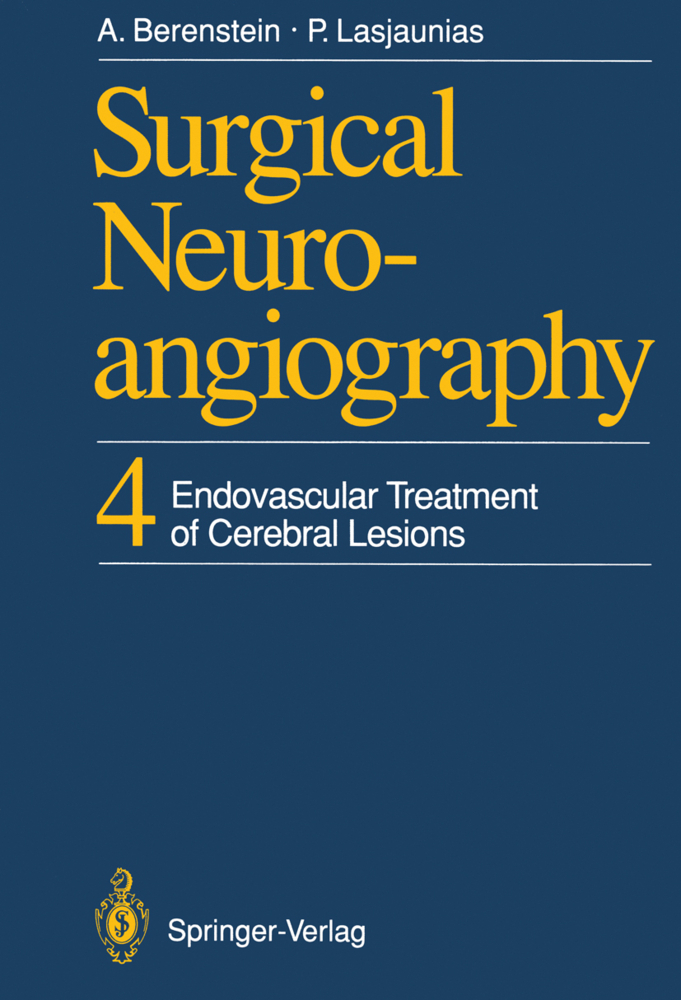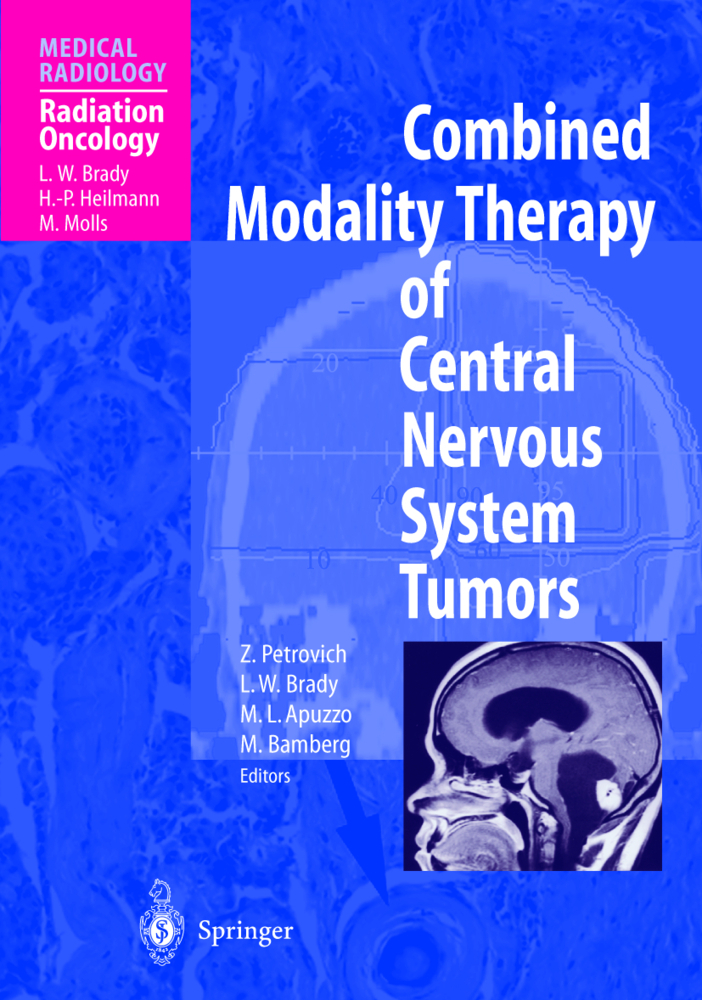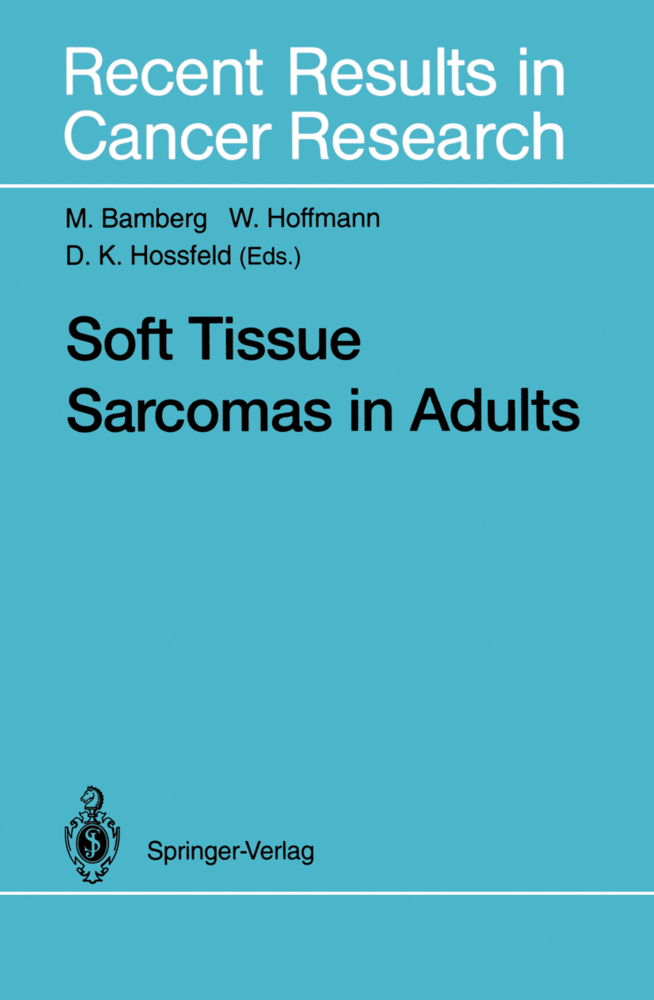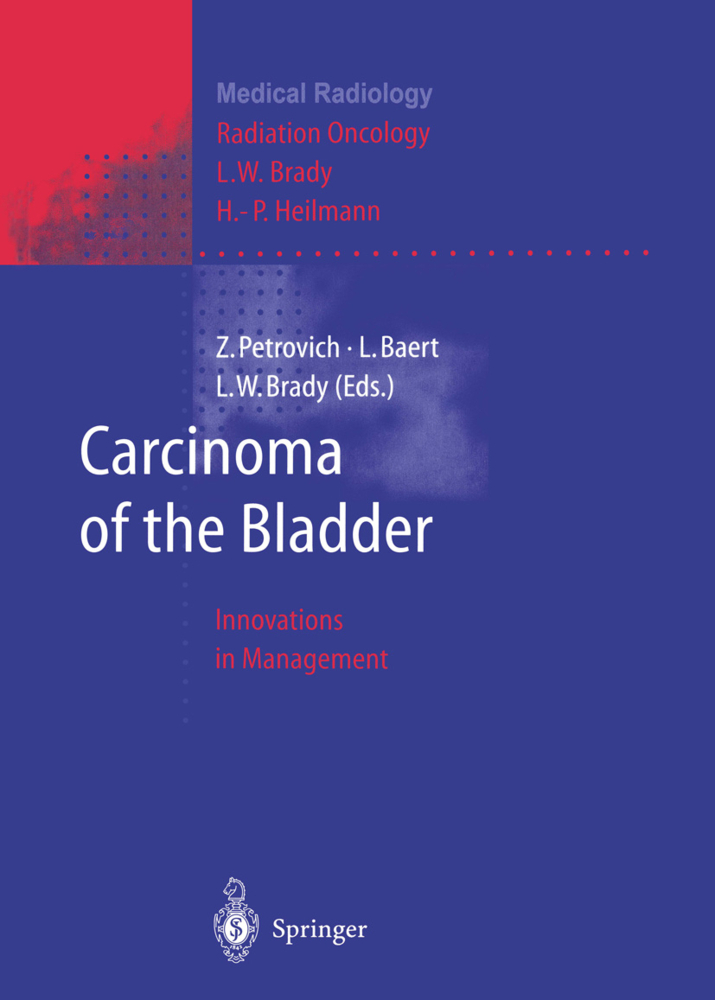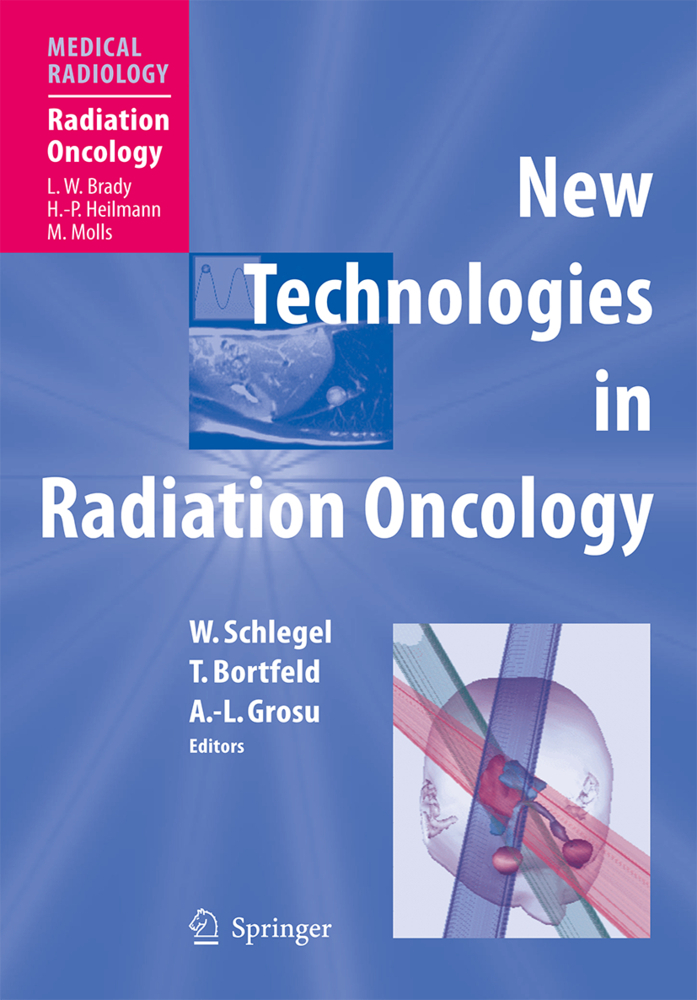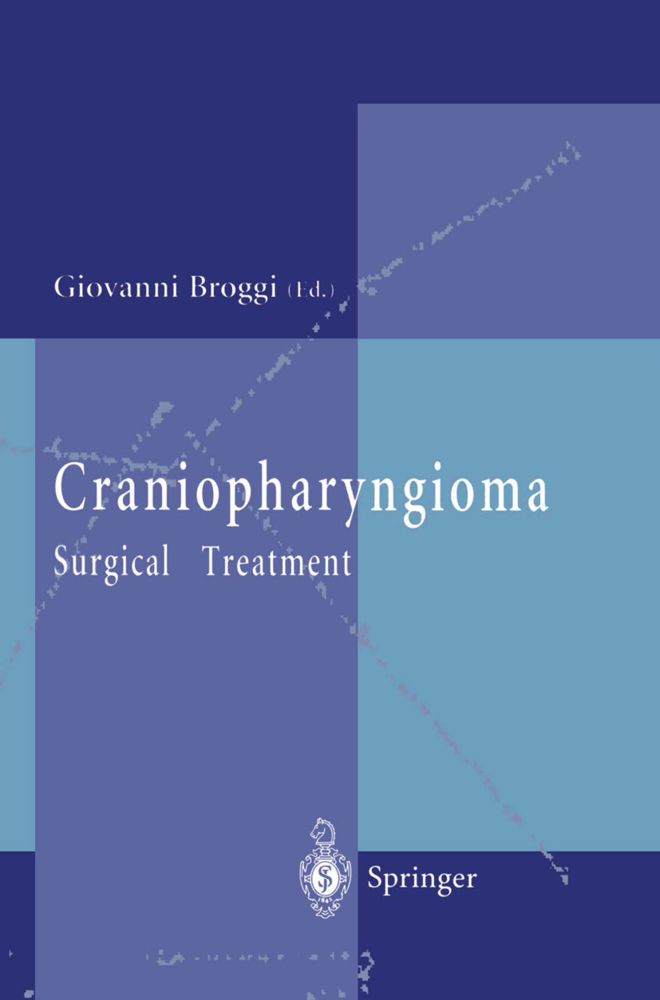Molecular Neuro-oncology and Its Impact on the Clinical Management of Brain Tumors
Molecular Neuro-oncology and Its Impact on the Clinical Management of Brain Tumors
1 2 3 O. D. Wiestler , U. Schlege1 , andJ. Schramm lInstitut flir Neuropathologie, Universitatskliniken Bonn, Sigmund-Freud-Str. 25, 53127 Bonn, Germany 2Neurologische Universitatsklinik, Sigmund-Freud-Str. 25, 53127 Bonn, Germany 3Neurochirurgische Universitatsklinik, Sigmund-Freud-Str. 25,53127 Bonn, Germany In contrast to various other neoplastic disorders, there has still been no dramatic progress in the treatment of gliomas. Modem microsurgical and imaging techniques have made more tumors surgically accessible and have allowed a more extensive surgical resection. However, these new developments have not improved the clinical outcome. Recently, molecular biological studies on genes and genetic loci affected in tumors of the nervous system have yielded significant new insights into pathoge netic machanisms. Many neuro-oncologists are therefore looking forward to transla ting molecular genetic findings into novel diagnostic and therapeutic strategies for the management of these devastating neoplasms. We have produced this volume with the intention of highlighting major developments in both molecular and clinical neuro-oncology and of stimulating the communication and cooperation between these two fields. Two major families of growth-controlling genes have emerged from the past decade of intense research on the molecular genetics of tumors: oncogenes and tumor suppressor genes. Oncogenes are characterized by their potential to stimulate the growth of susceptible cells whereas tumor suppressor genes share a growth-inhibi ting property. A stringently controlled interplay between these two regulatory me chanisms is required to maintain a stable composition of tissues.
Epidermal Growth Factor Receptor Gene and Its Transcripts in Glioblastomas
Type and Frequency of p53 Mutations in Tumors of the Nervous System and Its Coverings
Astrocytic Gliomas: Characterization on a Molecular Genetic Basis
Prognostic Relevance of Transforming Genes
Oncogene Transfer into the Brain
The O-2A Lineage: From Rats to Humans
Clinical Neuro-oncology
The Anti-Hu Syndrome: A Model Paraneoplastic Disorder
Radiosurgery/Stereotactic External Beam Radiotherapy for Malignant Brain Tumours: The Royal Marsden Hospital Experience
Interstitial Implant Radiosurgery of Brain Tumors: Radiobiology, Indications, and Results
Interstitial Brachytherapy of Malignant Gliomas: The Memorial Sloan-Kettering Cancer Center Experience
Aggressive Oligodendroglioma: A Chemosensitive Tumor
Chemotherapy of Malignant Gliomas
Interstitial Chemotherapy with Sustained-Release Polymer Systems for the Treatment of Malignant Gliomas
Primary Central Nervous System Lymphoma
Epidermal Growth Factor Receptor Expression in Human Malignant Glioma: In Vitro and In Vivo Effects of Application of Monoclonal Antibodies to the Epidermal Growth Factor Receptor
Target Cell Induced T Cell Activation with Bispecific Antibodies: A New Concept for Tumor Immunotherapy.
Molecular Neuro-oncology
Human Neuroblastoma: Amplification of the N-myc Oncogene and Loss of a Putative Cancer-Preventing Gene on Chromosome 1pEpidermal Growth Factor Receptor Gene and Its Transcripts in Glioblastomas
Type and Frequency of p53 Mutations in Tumors of the Nervous System and Its Coverings
Astrocytic Gliomas: Characterization on a Molecular Genetic Basis
Prognostic Relevance of Transforming Genes
Oncogene Transfer into the Brain
The O-2A Lineage: From Rats to Humans
Clinical Neuro-oncology
The Anti-Hu Syndrome: A Model Paraneoplastic Disorder
Radiosurgery/Stereotactic External Beam Radiotherapy for Malignant Brain Tumours: The Royal Marsden Hospital Experience
Interstitial Implant Radiosurgery of Brain Tumors: Radiobiology, Indications, and Results
Interstitial Brachytherapy of Malignant Gliomas: The Memorial Sloan-Kettering Cancer Center Experience
Aggressive Oligodendroglioma: A Chemosensitive Tumor
Chemotherapy of Malignant Gliomas
Interstitial Chemotherapy with Sustained-Release Polymer Systems for the Treatment of Malignant Gliomas
Primary Central Nervous System Lymphoma
Epidermal Growth Factor Receptor Expression in Human Malignant Glioma: In Vitro and In Vivo Effects of Application of Monoclonal Antibodies to the Epidermal Growth Factor Receptor
Target Cell Induced T Cell Activation with Bispecific Antibodies: A New Concept for Tumor Immunotherapy.
Wiestler, O. D.
Schlegel, U.
Schramm, J.
| ISBN | 978-3-642-85041-7 |
|---|---|
| Artikelnummer | 9783642850417 |
| Medientyp | Buch |
| Auflage | Softcover reprint of the original 1st ed. 1994 |
| Copyrightjahr | 2012 |
| Verlag | Springer, Berlin |
| Umfang | IX, 200 Seiten |
| Abbildungen | IX, 200 p. 24 illus. |
| Sprache | Englisch |

